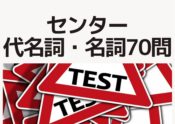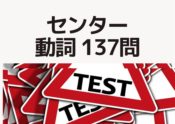整序英作文で超頻出!「間接疑問文」 センター過去問11題付 文法12

大手予備校で中1から高3の基礎クラスから東大クラスまでほとんどのクラスを担当しました。映像授業にも多数出演経験あり。
元東海大非常勤講師。
「大学入試英語解く得!」は最高PV数 34,212 / 日
質・量ともに日本一分かりやすい大学入試英語対策ページを目指します!
資格:英検一級、通訳案内士(英語)、TOEIC950点
趣味:海外旅行、食べ歩き
特技:将棋アマ六段 (全国レーティング選手権優勝 1998)
元技術翻訳者、元富士通
頻出ということはそれだけ間違いやすいとも言えますが、間接疑問文に関しては難しさは皆無なのでこの記事を読んでスッキリと理解して下さい。注意するのはdo you think? が絡む間接疑問文です。
今回の内容
1. 基本確認問題 [ 正しい文は? ]
①Why was Satoshi late for school?
②Why Satoshi was late for school?
③Do you know why was Satoshi late for school?
④Do you know why Satoshi was late for school?
⑤I know why Satoshi was late for school.
⑥I know who can play the piano well.
⑦Do you think what I have in my hand?
⑧What do you think I have in my hand?
2. 基本確認問題 [ 正しい文は? ] 解答
①Why was Satoshi late for school?
②Why Satoshi was late for school?
③Do you know why was Satoshi late for school?
④Do you know why Satoshi was late for school?
⑤I know why Satoshi was late for school.
⑥I know who can play the piano well.
⑦Do you think what I have in my hand?
⑧What do you think I have in my hand?
3. 間接疑問文の基本
3-1 直接疑問文と間接疑問文
1. Is he a student?
2. Does he live in Tokyo?
通常、疑問文は倒置します。
be動詞の場合は主語とbe動詞が倒置され、一般動詞の場合は主語の前にdo / does / didを置きますが、これも一般動詞の倒置です。
ところでなぜ疑問文は倒置するか考えたことがありますか? また疑問詞を伴わない疑問文は上がり調子で文が終わるか考えたことがありますか?
実は、これは相手に「疑問文だから私の疑問に答えてね!」という一種の合図なのです。なので形を変えたり、語尾を上げたりするのですね。
1. Is he a student? ← He is a student. の倒置
2. Does he live in Tokyo? ← He lives in Tokyo.の倒置
さて、通常の疑問文は単に疑問文と言いますが、厳密に言うとこれが直接疑問文。直接疑問文は相手に直接尋ねる意図があります。
さて、次に間接疑問文を見てみます。
3. Do you know where he lives? 彼がどこに住んでいるか知っていますか。
4. I know where he lives. 彼がどこに住んでいるか知っている。
何れも彼がどこに住んでいるかは直接の疑問になっていないことが分かりますか?
3. は「知っているかどうか」が直接の疑問のでこちらは倒置になっています。
4. は「知っている」なので直接の疑問はありません。よってどこも倒置されていませんね。
【 直接疑問文と間接疑問文 】
・直接疑問文は相手に直接疑問を投げかけているので倒置にする。
・間接疑問文は相手に直接疑問を投げかけていないので倒置にならない。通常の語順になる。
全然難しい話ではありませんね。
3-2 疑問詞が主語だとそもそも倒置しない
1. Who is he?
2. Who can play the violin?
この2つのwhoの違いは分かりますか?訳すだけなら問題ないと思いますが。
実は①のWhoは補語。②のWhoは主語になっています。
He is Tom. → Who is he? Tomの部分を尋ねているので補語
Yasu can play the violin. → Who can play the violin? Yasu の部分を尋ねているので主語
そして大事なのは主語が疑問詞になる場合はそもそも倒置しません。
こ内容は中1くらいで主語や補語など意識しない時に習います。意外とキチンと理解していない事が多いので気をつけて下さい。(高3のできる生徒から「恥ずかしい話ですが」と言われながらこの件の質問を受けた事があります)
3-3 Do you think ~?型の間接疑問文は注意が必要
要注意なのではdo you think ~?型の間接疑問文です。
【 以下の2文を1文にせよ 】
Do you think? + What did he buy?
簡単でしたでしょうか?
×Do you think what he bought? ー Yes.
○What do you think he bought? ー (I think he bought) some postcards.
聞きたいのは「何を買ったと思うか」なのに、これだと “Do you~” で始めると答は”Yes.” か”No.”になります。
「思いますか」それとも「思いませんか」ではそれもそも質問質問自体は変ですよね。
What を文頭に持ってくれば普通に物で答えられるので問題ありません。
【 ポイント 】
・Yes / Noの答を期待しないthinkなど「思う」という意味の動詞が間接疑問文を作る場合はWhat do you think~?の形、つまり疑問詞+do yo think~?の語順になります。
・think以外にも「思う系の動詞」「言う系の動詞」は同様の形になります。
「思う系動詞」think, believe, hope, suppose, imagine, guessなど
「言う系動詞」say, tell, suggest など
“How much money do you suppose we need to go to London?”
“I suppose you need about 200,000 yen in total.”
「ロンドンに行くのにいくらのお金が必要だと思いますか」
4. 基本確認問題 [ 正しい文は? ] [ 2文を1文にする ] 解説
①Why was Satoshi late for school?
②Why Satoshi was late for school?
①と②は直接疑問文なので倒置にする必要があります。
③Do you know why was Satoshi late for school?
④Do you know why Satoshi was late for school?
⑤I know why Satoshi was late for school.
③から⑤は間接疑問文なので倒置しません。平叙文の語順になります。
⑥I know who can play the piano well.
who can play ~のwhoは主語なので、直接疑問文でも倒置しません。間接疑問文でも同様です。
⑦Do you think what I have in my hand?
⑧What do you think I have in my hand?
do you think ~?が絡む場合はWhat do you think ~? の形になるのでしたね。
5. センター英語で出た!間接疑問文の過去問
1. Yukio: Did you hear that a new entrance ID system will be introduced next month?
Lucas: Really? Do we need it? I ( )( )( )( )( )( ) to replace the current system.
【 ①cost ②how ③it ④much ⑤will ⑥wonder 】
(センター2019年 本試験)
2. Joseph: Do you ( )( )( )( )( )( )?
Michael: Well, it’s difficult to explain. I think you’ll have to try one to find out.
【 ①a ②know ③like ④papaya ⑤tastes ⑥what 】
(センター2018年 追試験)
3. Fritz: Some students said they heard a rumor about Naoki.
Sophia: I heard it, but it’s false. I wonder ( )
【 (A)how can we (B)how we can 】 →
【 (A)persuade it (B)prevent it 】 →
【 (A)from spreading. (B)to spread. 】
(センター2017年 本試験)
4. Sorry. We talked about it just now, but ( A ) did you say ( B )?
①A: how B: the best solution ②A: how B: was the best solution ③A: what B: the best solution ④A: what B: the best solution was
(センター2015年 本試験)
5. We’re thinking about going on a picnic tomorrow. I’d really like to know ( )( )( )( )( )( ).
【 ①be ②like ③the ④weather ⑤what ⑥will 】
(センター2011年 追試験)
6. “( )( )( )( )( )( )( ) for your vacation? I thought you weren’t sure”. “I decided yesterday.”
【 ①decide ②did ③going ④when ⑤where ⑥you ⑦you’re 】
(センター2010年 本試験)
7. To know how much time is needed to get to Medra University, you could ask:
( )( )( )( )( )( ) take from here to Medra University?
【 ①do ②how long ③it ④think ⑤you ⑥will 】
(センター2009年 追試験)
10. Since my secretary didn’t take the name of the visitor, I couldn’t ( )( )( )( )( ) .
【 ①see ②be sure ③me ④who ⑤had come to 】
(センター2002年 本試験)
9. I heard you’re planning to build a new house. Do you know how much ( )?
①cost it will be ②it cost ③it will cost ④will it cost
(センター1999年 本試験)
10. Children ( )( )( )( )( ) while they are playing with other children.
【 ①how ②human relationships ③influences ④language ⑤learn 】
(センター1995年 本試験)
11. When learners of a foreign language first visit the country where it is spoken,
( )( )( )( )( ).
【 ①how little ②surprised to find ③they are very often ④they hear ⑤they understand the language 】
(センター1994年 本試験)
6. センター英語で出た!関係詞の過去問 解答・解説
6-1 ①~⑤
1. Yukio: Did you hear that a new entrance ID system will be introduced next month?
Lucas: Really? Do we need it? I ( )( )( )( )( )( ) to replace the current system.
【 ①cost ②how ③it ④much ⑤will ⑥wonder 】
(センター2019年 本試験)
正解 ⑥②④③⑤①
I wonder how much it will cost to ~
・I wonder 「~かなと思う」
・間接疑問文なのでit will cost の語順になる
・この it は形式主語でto以下を指す。
現在のシステムと置き換えるのにいくらかかるのだろうか。
2. Joseph: Do you ( )( )( )( )( )( )?
Michael: Well, it’s difficult to explain. I think you’ll have to try one to find out.
【 ①a ②know ③like ④papaya ⑤tastes ⑥what 】
(センター2018年 追試験)
正解 ②⑥①④⑤③
Do you know what a papaya tastes like?
・What is S like ? 「Sはどのようなものか」
・ここでは間接疑問文なのでWhat S is like の形になる。そしてbe動詞の代わりに同じくSVCの形を取るtasteが使われている。
パパイヤはどんな味なのか知っていますか。
3. Fritz: Some students said they heard a rumor about Naoki.
Sophia: I heard it, but it’s false. I wonder ( )
【 (A)how can we (B)how we can 】 →
【 (A)persuade it (B)prevent it 】 →
【 (A)from spreading. (B)to spread. 】
(センター2017年 本試験)
・間接疑問文⇒平叙文の語順 I wonder+疑問詞~ 「~だろうかと思う」
・噂は誤っているのだから広まって欲しくないと考える。
⇒prevent O from Ving 「OがVするのを妨げる」
・persuade O to V 「OがVするよう説得する」
正解 (B)→(B)→(A)
I wonder how we can prevent it from spreading.
どうしたらはそれ(噂)が広まらないようにできるのだろうか。
4. Sorry. We talked about it just now, but ( A ) did you say ( B )?
①A: how B: the best solution ②A: how B: was the best solution ③A: what B: the best solution ④A: what B: the best solution was
(センター2015年 本試験)
・What was the solution? にdid you sayが挿入された形
・The solution was X.⇒ Xは名詞が来るはず。
◯What was the solution? (What は名詞)
×How was the solution? (How は副詞)
・間接疑問文⇒語順転倒しない。よって②は☓
1番良い解決策は何だとあなたは言いましたか。
「言う系の動詞」なので what did you say the best solution was? と疑問詞+did you say ~? となっています。整序英作文で出されたら難問だったかも。
 しげT
しげT
5. We’re thinking about going on a picnic tomorrow. I’d really like to know ( )( )( )( )( )( ).
【 ①be ②like ③the ④weather ⑤what ⑥will 】
(センター2011年 追試験)
正解 ⑤③④⑥①②
I’d really like to know what the weather will be like.
・What is S like?「Sはどのようなものか」
・間接疑問文なのでwhat S is like の語順になる。
私は天気がどのようになるか本当に知りたい。
6-1 ⑥~⑪
6. “( )( )( )( )( )( )( ) for your vacation? I thought you weren’t sure”. “I decided yesterday.”
【 ①decide ②did ③going ④when ⑤where ⑥you ⑦you’re 】
(センター2010年 本試験)
正解 ④②⑥①⑤⑦③
“When did you decide where you’re going for your vacation?
・whenとwhereどちらを文頭に置くか?
後に続く発言で「昨日決めた」とあるのでwhenを選択。
・whenの節は普通の疑問文だが、whereの節は間接疑問文なので倒置にならない。
「休暇はどこに行くのかいつ決めたの?まだはっきりしないと思ってんだけど」「昨日決めたんだ」
7. To know how much time is needed to get to Medra University, you could ask:
( )( )( )( )( )( ) take from here to Medra University?
【 ①do ②how long ③it ④think ⑤you ⑥will 】
(センター2009年 追試験)
正解 ②①⑤④③⑥
To know how much time is needed to get to Medra University, you could ask:
how long do you think it will take from here to Medra University?
・間接疑問文の問題 do you think ~?は「思いますか、思いませんか」という疑問ではないので疑問詞の後に続く形になる。
・how long does it take from A to B? 「AからBまでどのくらい(の時間が)かかりますか」
ここからMedra大学までどれくらいの時間がかかると思いますか。
8. Since my secretary didn’t take the name of the visitor, I couldn’t ( )( )( )( )( ) .
【 ①see ②be sure ③me ④who ⑤had come to 】
(センター2002年 本試験)
正解 ②④⑤①③
I couldn’t be sure who had come to see me.
・間接疑問文 whoは主語なので普通の語順にすれば良い。
誰が私に会いに来たのか分からない。
9. I heard you’re planning to build a new house. Do you know how much ( )?
①cost it will be ②it cost ③it will cost ④will it cost
(センター1999年 本試験)
・未来の話+costは動詞+間接疑問文なので③が正解
いくらかかるであろうか知っていますか。
10. Children ( )( )( )( )( ) while they are playing with other children.
【 ①how ②human relationships ③influences ④language ⑤learn 】
(センター1995年 本試験)
正解 ⑤①④③②
Children learn how language influences human relationships while they are playing with other children.
・子供たちは学ぶ はずだから動詞はlearn
・後は間接疑問文なので肯定文の語順にする。
子どもたちは、他の子供と遊んでいる間に言語が人間関係に影響を与えることを学ぶ。
11. When learners of a foreign language first visit the country where it is spoken,
( )( )( )( )( ).
【 ①how little ②surprised to find ③they are very often ④they hear ⑤they understand the language 】
(センター1994年 本試験)
正解 ③②①⑤④
When learners of a foreign language first visit the country where it is spoken, they are very often surprised to find how little they understand the language they hear.
・be surprised to find ~ 「~が分かって驚く」
・how little 以下は間接疑問文
・the language they hear → language と they hear の間に関係代名詞whichの省略。
外国語の学習者が初めてその言語が話されている国を訪れると、聞こえる言語がほとんど理解できないか分かって驚くことがよくある。
大手予備校で中1から高3の基礎クラスから東大クラスまでほとんどのクラスを担当しました。映像授業にも多数出演経験あり。
元東海大非常勤講師。
「大学入試英語解く得!」は最高PV数 34,212 / 日
質・量ともに日本一分かりやすい大学入試英語対策ページを目指します!
資格:英検一級、通訳案内士(英語)、TOEIC950点
趣味:海外旅行、食べ歩き
特技:将棋アマ六段 (全国レーティング選手権優勝 1998)
元技術翻訳者、元富士通






